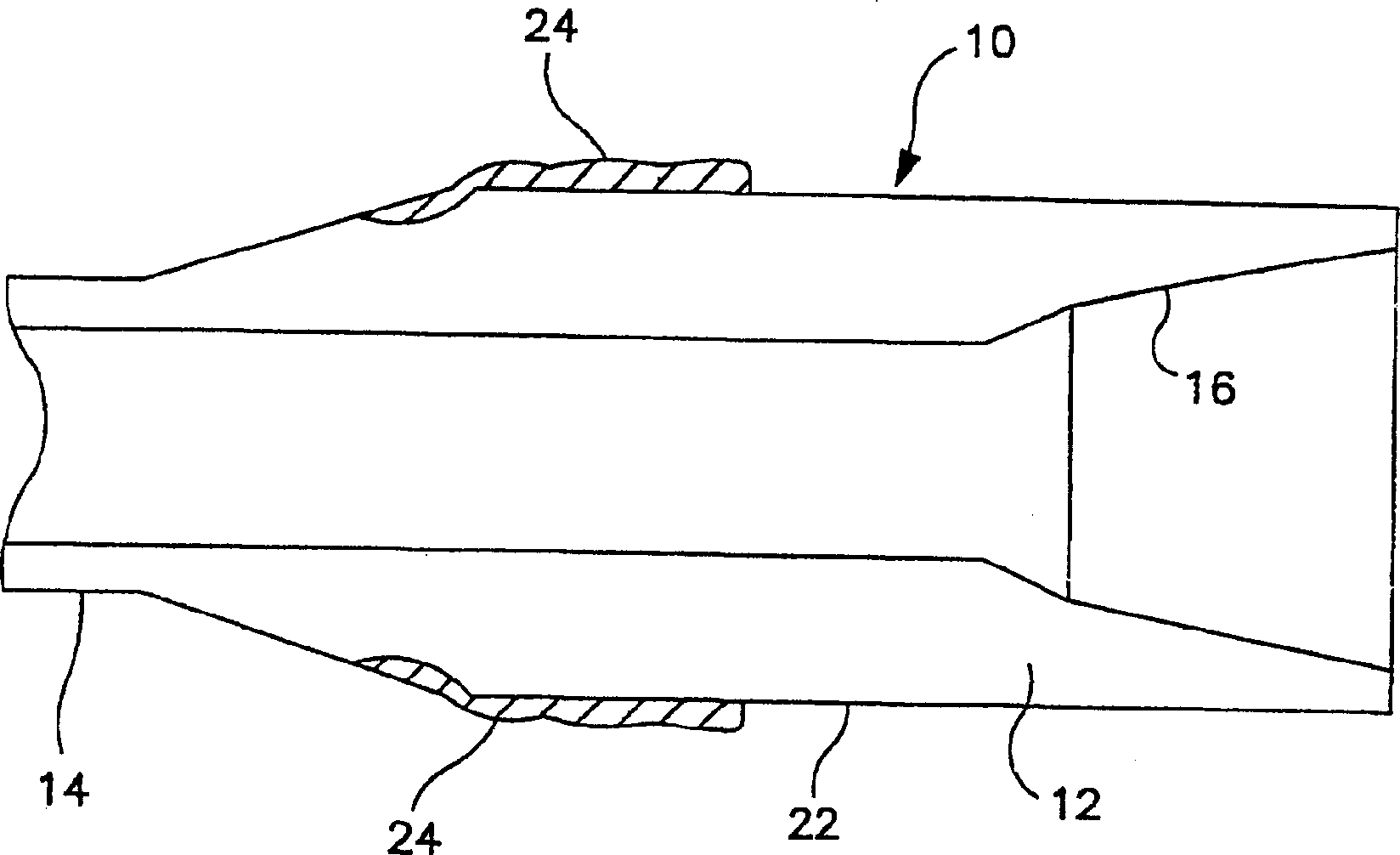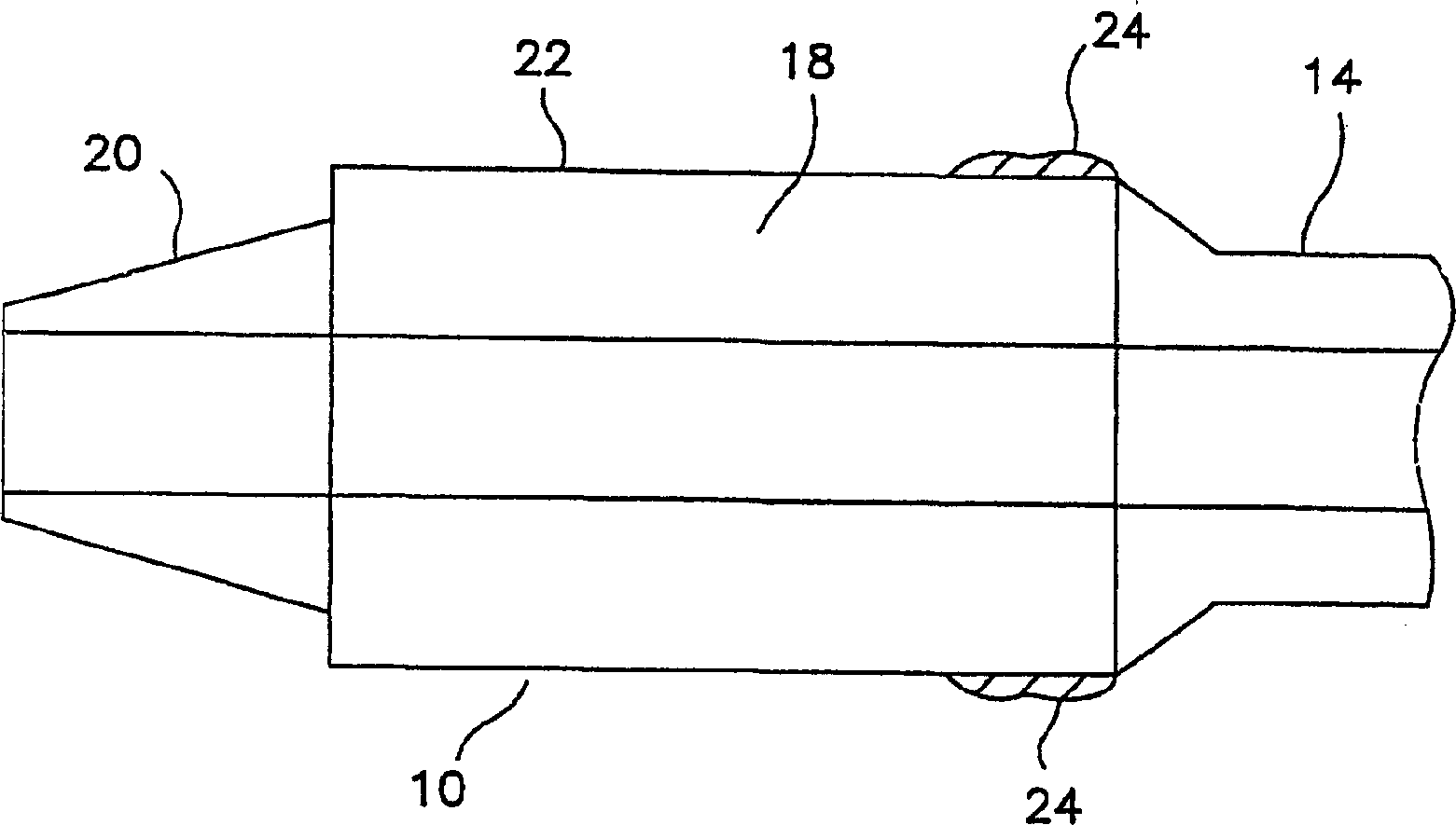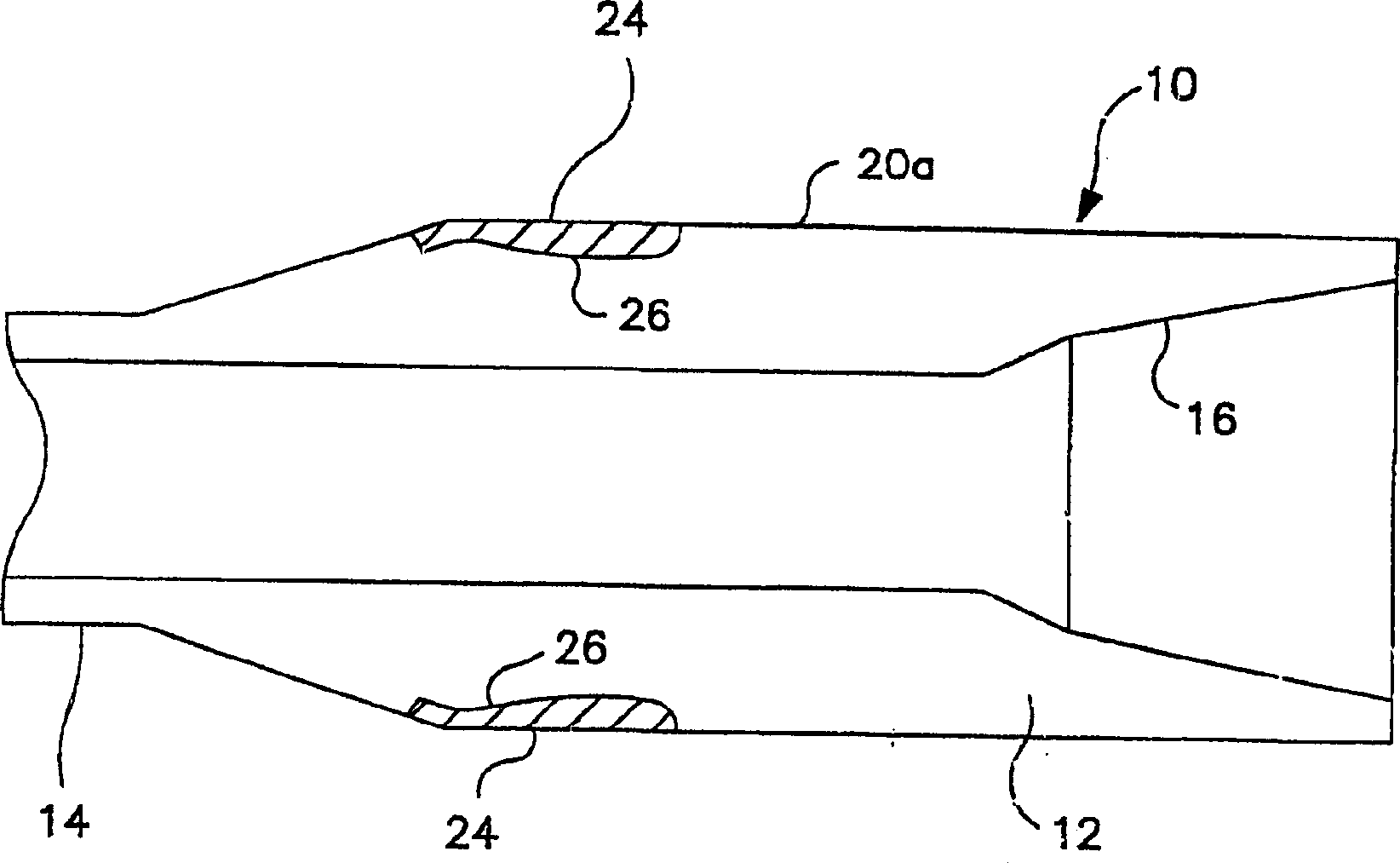Hardfacing alloy. methods and products
A hard and alloy technology, applied in the field of hard alloy surface hardening, can solve problems such as small mechanical failure, and achieve the effects of excellent wear resistance, low friction coefficient, and excellent metal-to-metal wear resistance
- Summary
- Abstract
- Description
- Claims
- Application Information
AI Technical Summary
Problems solved by technology
Method used
Image
Examples
Embodiment 1
[0059] The preheating temperature is usually 100 to 400°C.
[0060] For tool joints of case-hardened AISI (American Iron and Steel Institute) 4137 steel, the preferred preheating temperature ranges are listed in Table 2 below.
[0061] Table 2
[0062] Tool joint O.D. preheating temperature
[0063] 3-1 / 8″~4-3 / 8″ 150~200°F (66~93°C)
[0064] 4-3 / 4″~5-1 / 4″ 200~250°F (93~121°C)
[0065] 5-1 / 2″~6-1 / 4″ 300~350°F (149~177°C)
[0066] 6-1 / 2″~6-3 / 4″ 350~400°F (177~204°C)
[0067] 7″~7-1 / 4″ 400~450°F (204~232°C)
[0068] 7-1 / 2″~7-3 / 4″ 450~500°F (232~260°C)
[0069] 8″~8-1 / 2″(nom.) 600~700°F(316~371℃)
[0070] 8″~8-1 / 2″(w / 5″id.) * 500~600°F (260~316°C)
[0071] * Tool joints of this size have much thinner wall thickness than standard tool joints.
Embodiment 2
[0073] For tool joints of case-hardened AISI 4145-HT steel, the preferred preheating temperature ranges are listed in Table 3 below.
[0074] table 3
[0075] Tool Joint / Drill Collar O.D. Preheat Temperature
[0076] Less than 4-3 / 4″ 150-200°F (66-93°C)
[0077] 4-3 / 4″~6-1 / 8″ 200~300°F (93~149°C)
[0078] 6-1 / 4″~7-1 / 4″ 300~400°F (149~204°C)
[0079] 7-1 / 2″~7-3 / 4″ 450~500°F (232~260°C)
[0080] 8″~8-1 / 2″(nom.) 600~700°F(316~371℃)
[0081] 8″~8-1 / 2″(w / 5″id.) * 500~600°F (260~316°C)
[0082] *A tool joint of this size has a much thinner wall thickness than a standard tool joint.
Embodiment 3
[0084] For tool joints of case-hardened AISI 1340-HT steel, the preferred preheating temperature range is listed in Table 4 below
[0085] Table 4
[0086] Tool joint O.D. preheating temperature
[0087] Less than 4-3 / 4″ 150-200°F (66-93°C)
[0088] 4-3 / 4″~6-1 / 8″ 200~300°F (93~149°C)
[0089] 6-1 / 4″~7-1 / 4″ 300~400°F (149~204°C)
[0090] 7-1 / 2″~7-3 / 4″ 450~500°F (232~260°C)
[0091] 8″~8-1 / 2″(nom.) 600~700°F(316~371℃)
[0092] 8″~8-1 / 2″(w / 5″id.) * 500~600°F (260~316°C)
[0093] *A tool joint of this size has a much thinner wall thickness than a standard tool joint.
[0094] Those of the preceding examples are representative preheat temperatures for those applications, used as examples of other preheat temperatures, depending on the size of the part to be hardfaced and the inherent properties of the matrix material, by simple Experiment OK.
[0095] The preheat temperature is preferably measured with a contact electronic pyrometer, although other temperature measure...
PUM
| Property | Measurement | Unit |
|---|---|---|
| hardness | aaaaa | aaaaa |
Abstract
Description
Claims
Application Information
 Login to View More
Login to View More - R&D
- Intellectual Property
- Life Sciences
- Materials
- Tech Scout
- Unparalleled Data Quality
- Higher Quality Content
- 60% Fewer Hallucinations
Browse by: Latest US Patents, China's latest patents, Technical Efficacy Thesaurus, Application Domain, Technology Topic, Popular Technical Reports.
© 2025 PatSnap. All rights reserved.Legal|Privacy policy|Modern Slavery Act Transparency Statement|Sitemap|About US| Contact US: help@patsnap.com



